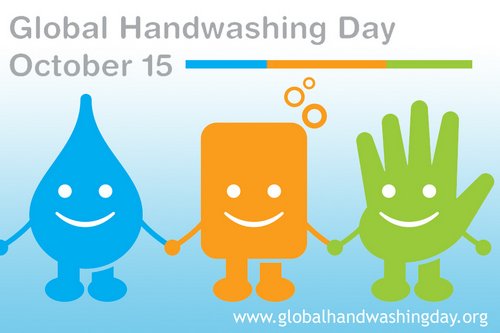Happy Global Handwashing Day! Today we feature a piece authored by Kerry Gallo of Children Without Worms:
By: Kerry Gallo, Children Without Worms
Since joining Children Without Worms (CWW) earlier this year, I’ve spent most of my time thinking about neglected tropical diseases (NTDs)—in particular, intestinal worms in kids, and how deworming medications like albendazole and mebendazole can make kids healthy. But last week, I had the opportunity to step out of the NTD space and into the water, sanitation and hygiene (WASH) world for a few days by attending the Water and Health: Where Science Meets Policy Conference in Chapel Hill, North Carolina.
I’ve written before about the importance of partnerships between the NTD and WASH sectors. CWW advocates for the WASHED Framework (Water, Sanitation, Hygiene Education and Deworming) as a comprehensive strategy for prevention and treatment of intestinal worms. Our role is to partner with drug companies to coordinate the donations of deworming medications, such as albendazole from GlaxoSmithKline and mebendazole from Johnson & Johnson. But since we are not WASH program implementers, we turn to our partners to complement deworming with the administration of hygiene education and improvements to water and sanitation infrastructure.
It was in the role of partner and advocate for WASHED that I attended the conference and met with many colleagues representing various WASH organizations. One event that was discussed with excitement was Global Handwashing Day.
Handwashing—what could be more simple? It seems like such an incredibly basic activity to us, but for kids in low resource settings around the world, it may not be so simple.
One of the biggest obstacles to handwashing is determining how people are supposed to practice good handwashing behaviors without water and soap. In many schools and communities in sub-Saharan Africa, clean water in sufficient quantities is a rarity. Children may spend a large part of their school day fetching water from rivers, lakes or far-off wells for water of dubious quality. In the dry season the problem is even worse, and every spare drop of water is needed for drinking and cooking—little wonder then that handwashing will be seen as an unnecessary waste of this precious resource.Behavioral studies have shown that kids are much more likely to wash their hands with soap if it is located close to the source of water. But in schools where kids and teachers come from poor homes, the use of soap is guarded, meaning kids must ask to use it—creating another point where the handwashing system falters.

Photo credit Kerry Gallo: Handwashing station installed by CARE. Unfortunately there was no soap.
Handwashing advocates are constantly looking for creative solutions to the problems of behavior and lack of water and soap, such as installing low-cost, low-tech handwashing stations made of buckets with simple taps attached. These simple handwashing stations are a good option for many rural schools, but the important thing to remember is that school administrators must be empowered to maintain these systems. They especially must be supplied with funds to repair broken handwashing systems and purchase soap and clean water during the dry season.
The approach being taken by organizations in the WASH sector to address these issues and support campaigns such as Global Handwashing Day is impressive. Some of the organizations present at the conference, such as the SWASH+ project, are using scientific methods to measure the success of various WASH interventions in schools to see what works best and what can be maintained over time. Others, such as Fit for Schools in the Philippines, are advocating for comprehensive school health programs that incorporate hygiene education into a basic package of health treatments and behavior change initiatives.
As deworming through drug donation programs expand into more countries, CWW will be looking to support more opportunities for countries to integrate hygiene education in communities and schools as part of a comprehensive strategy to control intestinal worms. In the coming years, CWW hopes to work with many partners in the WASH sector to support these programs, and to ensure that handwashing becomes a part of everyday life for children and communities around the world and not just on the one Global Handwashing Day each year.
Children Without Worms oversees the donation of mebendazole by Johnson & Johnson and albendazole by GlaxoSmithKline to treat children infected and at-risk of soil-transmitted helminthiasis. (www.childrenwithoutworms.org)

Well-written and interesting.